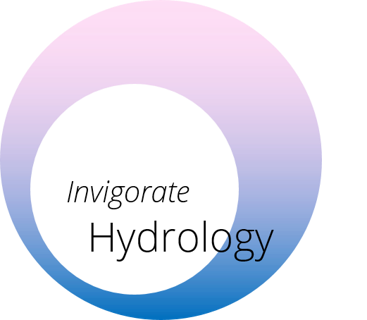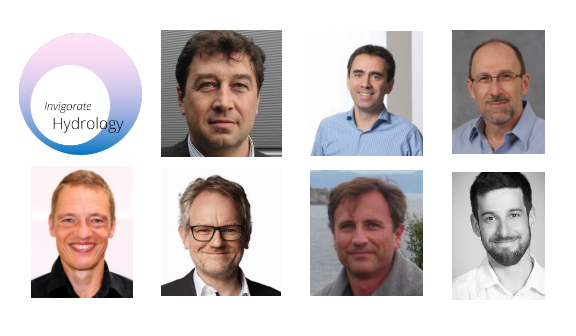
Invigorating Hydrological Science and Teaching: merging key Legacies with new Concepts and Paradigms (ViTamins)
- Contact:
- Funding:
- Startdate:
04/2022
- Enddate:
04/2028
ViTamins aims to invigorate Hydrology as i) the academic fundament of sustainable water resources management on a changing Earth, ii) a universal framework to embrace water related engineering disciplines such as fluid mechanics and hydraulic engineering, and iii) as a nexus to interconnect the fields of meteorology, ecology and soil science in an Earth system science context. The proposed strategy rests on four interrelated scientific cornerstones (SCS), which synthesize the academic strengths of a core team of internationally leading scientists and address key gaps limiting the attractiveness and the academic growth of Hydrology:
- Hydrology is by tradition an empirical, data driven science. In fact, András Bárdossy introduced Artificial Intelligence as early as 1995 to the field. Hydrology is hence predestined to explore the current clash and potential synergies between data driven and (still young) theory based (hydrological) science and teaching, as addressed in SCS I. This area is predestined for promoting Hydrology to the broader public through citizen science.
- Despite its fundamental importance for the Earth system, Hydrology still lacks - in comparison to Meteorology, Hydromechanics and Hydraulic Engineering - a useful theoretical fundament that provides the right reasons for explaining why predictions work, may guide experimental research and model development. SCS II will close this gap, also to make the subject of Hydrology more appealing for those students, who currently prefer other engineering or Earth system science subjects.
- The hydrological community is split between research paradigms (experimentalists, modellers) and equally importantly between compartments (groundwater and surface water hydrologists). SCS II and SCS III will unify these communities through fostering common research and teaching concepts. This is will also stimulate PhD and M.Sc. student exchange among split communities.
ViTamins will foster a fruitful cooperation and joint inspiring research of a core team of internationally leading scientists, thereby integrate a large, established community network, ultimately also to synthesize common guidelines for hydrological curricula among the participating universities and beyond. ViTamins is structured into seven interconnected work packages and combines newly requested strategic elements with ongoing strategic developments at KIT as backbone:
- A newly invented Junior Research Group on “Energy and Information Flows in Hydrological Systems”.
- Bridging Post Docs to coordinate joint science of the core team and the community network.
- ViTtamins will hook on the ongoing strategic developments in the area of research data management to foster reproducibility in science and publishing. The expansion of the available research environment V-FOR-WaTer is key for exploring the full potential of data driven scientific learning.
- ViTamins will provide scientific support for the development of the mesoscale “Karlsruhe Environmental System Simulator” (KESS), aiming to close the existing gaps between field experiments/monitoring, laboratory experiments, and models.
- ViTamins will strengthen research-oriented teaching, by developing and testing related new platforms and advanced methods. This will be embedded into a concerted action to sharpen and harmonize hydrological curricula among participating universities and beyonds.

